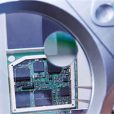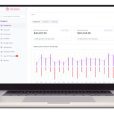Boeing’s planemaking and delivering abilities have come into question time and again. Most recently, the Federal Aviation Administration (FAA) pulled it up for faults in its plane parts, thus delaying its delivery to Qantas which is desperately trying to win back customers with more flights.
Is there a way for Boeing to produce more efficient planes? It seems to have found the answer in kinetic fusion manufacturing.
Melbourne-based metal additive manufacturing company Titomic Limited (ASX: TTT) has received a purchase order from Boeing Space, Intelligence, and Weapons Systems (Boeing) for $132k to continue flight qualifications of Titomic Kinetic Fusion manufactured components, which were initiated in 2021.
The purchase order is a result of an agreement made between the two companies in May 2019. That was centred around the production of additively manufactured test parts. Since then, both companies have made progress in the testing and development of the Titomic Kinetic Fusion technology for various aerospace applications.
Herbert Koeck, Managing Director of Titomic, commented, “This purchase order from Boeing is a significant milestone for Titomic and affirms the exceptional work our team has been doing. It is a strong testament to the success we’ve achieved in our testing and development, bringing us one step closer to commercialising our technology on a larger scale. We look forward to continuing our partnership with Boeing and to the future.”
Following the principles of 3D printing, TKF uses additive manufacturing—made possible with high-pressure cold spray—to build tools. The technology does not need to melt metals; instead, it uses metal powders released at high speed. It creates lightweight tools that can weather wear and tear, thus possibly helping Boeing avoid awkward conversations around its speed tape covering its poor paint job.
Boeing and Titomic have been working together for the past few years to develop new future-forward aerospace tech. In 2021, they came together to test Titomic’s technology for producing space components using green titanium, introducing sustainability in the aerospace industry.
The Company also appears financially well-placed to try new things. It recently raised $5.1 million via a strongly supported share placement at $0.16 per share, including a $2.2 million strategic investment from turn-key production company Repkon. It also received $400k in CoBRAIN funding to research and develop applications of artificial intelligence and machine learning within cold spray applications. Finally, it has received a $786,045 research and development tax incentive from the Australian Government.
In H1 FY23, Titomic’s revenue increased by 20.7% to $2.7 million, as it entered new spaces: Asia, the Middle East, and the mining industry. However, its losses improved minorly by 3.6% to $7.2 million. Though its production expenses were cut by half, its corporate and admin expenses shot up to over $2 million. The Company also increased its marketing spending from about $400k in H1 FY22 to over $1.09 million in H1 FY23, as it expanded its base in the US and undertook more overseas trade.
That said, the Company’s sales pipeline is looking up, set to amount to $34 million by the end of FY23 and about $80 million by FY24.
Given that the additive market is estimated to grow up to $146 billion in the next decade, Titomic’s future might be a promising one.
- Ovanti’s iSentric signs contracts worth $14.4m with Malaysian commercial bank - June 27, 2024
- Baby Bunting fights back from retail downturn with 5-year strategy, includes Gen-Z focus and self-funded growth - June 27, 2024
- CLEO meets with US FDA to develop strategy for ovarian cancer test launch - June 26, 2024













Leave a Comment
You must be logged in to post a comment.